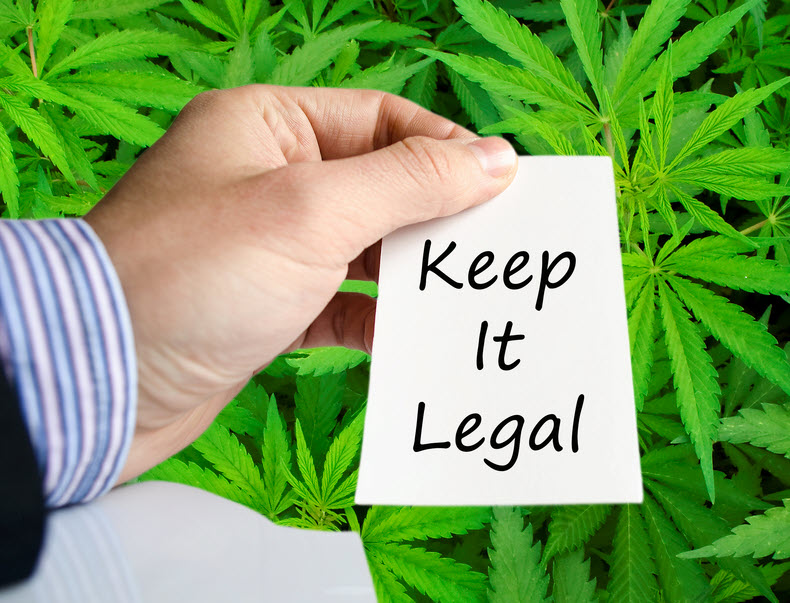
The legality of CBD remains a subject of considerable debate. Despite the fact that many CBD companies[1] have now existed for more than a decade, the legal context surrounding this non-intoxicating cannabinoid remains muddy for the average shopper. In this guide, we’ll explore the legality of CBD in detail, examining the implications along the way.
History of CBD Laws
Extracts of Cannabis sativa have been widely prepared and sold for centuries beyond count. It’s unclear exactly when human beings and cannabis intersected, but it’s believed cannabis has been a part of daily life at least as long as apples and potatoes.
It’s only recently that laws have turned discriminatory toward cannabis. Starting in Europe in the 19th century, this anti-cannabis fervor eventually reached the United States, spurring the “Reefer Madness” craze that ultimately led to cannabis being illegalized with the 1937 Marihuana Tax Act.
In 1970, the Controlled Substances Act sealed the deal, and hemp was not grown in considerable acreage until academic pilot programs began resurfacing in the early 2000s. By the early 2010s, legal loopholes were identified at the federal level that allowed CBD commerce to emerge online.
In 2014 and 2018, the United States Congress gave CBD the nod with Farm Bills that facilitated hemp cultivation and commerce. Not much has changed in the ensuing years, however, leading to a hemp economy that has begun to stagnate in some sectors.
Recent Developments in CBD Legislation
Cannabis-related measures continue to be proposed at both the state and federal level. Few of them focus specifically on CBD, however, which remains in a gray area loosely delineated by the 2018 Farm Bill and subsequent clarifications from the FDA, DEA, and USDA.
It appears the situation with CBD will remain unclear federally for the foreseeable future. There seems to be an “unwritten rule” that upstanding CBD companies will not run afoul of federal agencies as long as their conduct meets a certain unofficial threshold.
The FDA continues to issue warning letters to CBD companies that violate the dictates of the 2018 Farm Bill, but enforcement is rare and usually amounts to relatively small fines. At the state level, legislators continue to evolve their stances on CBD and related products, mainly in an effort to siphon tax revenue.
Potential Future CBD Regulations
Over time, the slew of largely unrelated hemp and cannabis laws continuously being produced by Congress may begin to amount to a comprehensive federal stance on cannabinoids. At this current juncture, however, cannabinoid regulations ever more commonly have less to do with the shopper’s interests and more to do with securing government revenue.
The ideal solution that hemp proponents have expounded for years, namely that CBD be judged an over-the-counter substance, appears further and further away as time goes by. At present, it seems the de facto approach is to not address the underlying legality of cannabinoids but to instead determine how best they should be taxed.
It might not be an ideal situation, but for the average CBD producer, this is still good news. There was a time in the not-so-distant past when it seemed the federal government was on the verge of attempting to ban CBD products outright. Though the current circumstances may remain muddy, at least there’s no longer any indication that the federal government is antithetical to hemp and CBD overall.
CBD Legality: The Bottom Line
As we finish up, it’s important to carefully address a few final points:
CBD regulations vary by state
For most intents and purposes, CBD can be considered federally legal. Each state has its own laws and regulations pertaining to CBD and other cannabinoids, however, some of which are more restrictive than others. CBD laws can be restrictive both in states that are firmly anti-cannabis and in those that have newer adult-use cannabis industries that suffer from direct competition with online CBD vendors.
No medical claims
CBD is certainly not legal when it is advertised as offering medical benefits. It’s fine to reference evidence that CBD might be useful for a particular ailment. To outright say that CBD treats or cures a medical condition, is tantamount to asking for the scrutiny of the federal government.
Professionalism first
The CBD companies that are currently succeeding are those that go above and beyond. Clean products, transparent communication, impeccable certification: these are the hallmarks of the future’s top CBD brands. Focusing on quality will make it less likely to flub regulations.
Respect CBD
CBD is a powerful compound, and it comes from a plant that has an amazing power to heal. Put CBD’s benefits first and foremost, and you’ll find that your company naturally begins to fit the parameters that both shoppers and regulators approve of most.
- SEO Powered Content & PR Distribution. Get Amplified Today.
- PlatoData.Network Vertical Generative Ai. Empower Yourself. Access Here.
- PlatoAiStream. Web3 Intelligence. Knowledge Amplified. Access Here.
- PlatoESG. Carbon, CleanTech, Energy, Environment, Solar, Waste Management. Access Here.
- PlatoHealth. Biotech and Clinical Trials Intelligence. Access Here.
- Source: http://cannabis.net/blog/opinion/how-legal-is-cbd-really